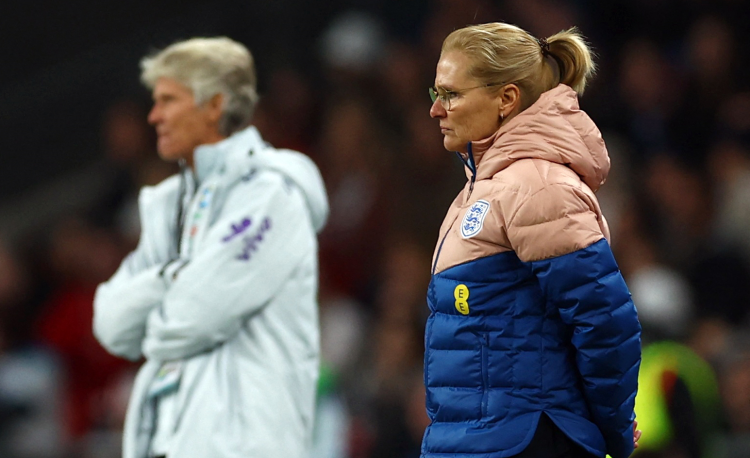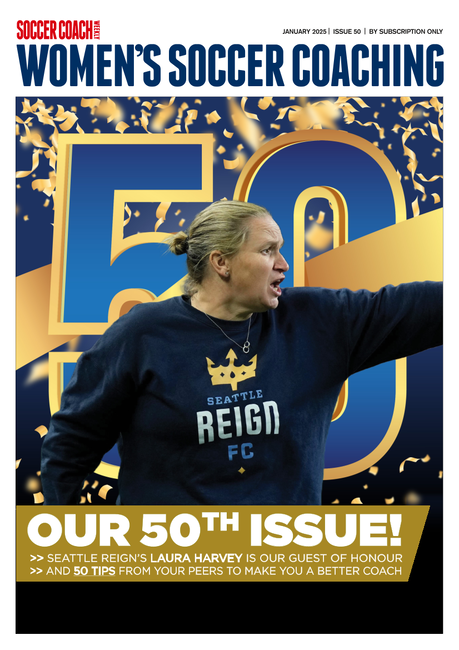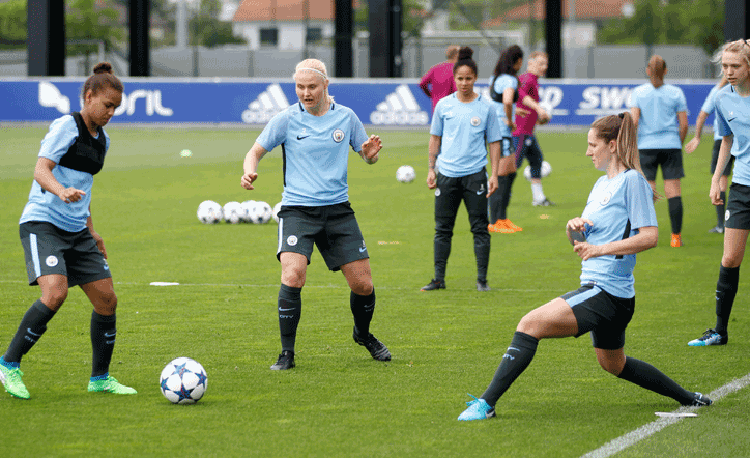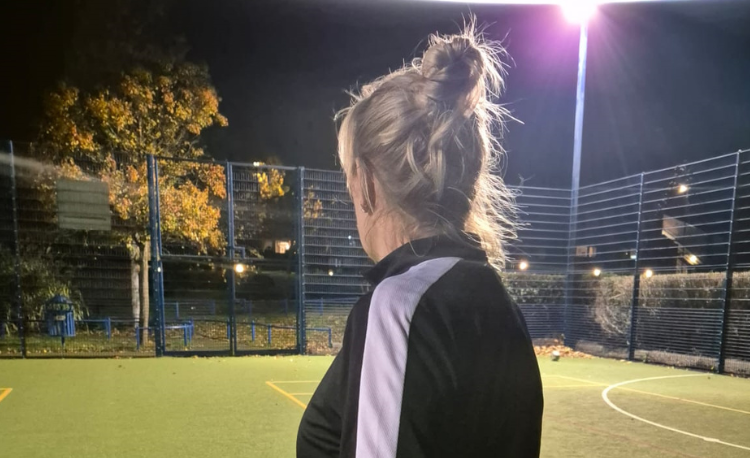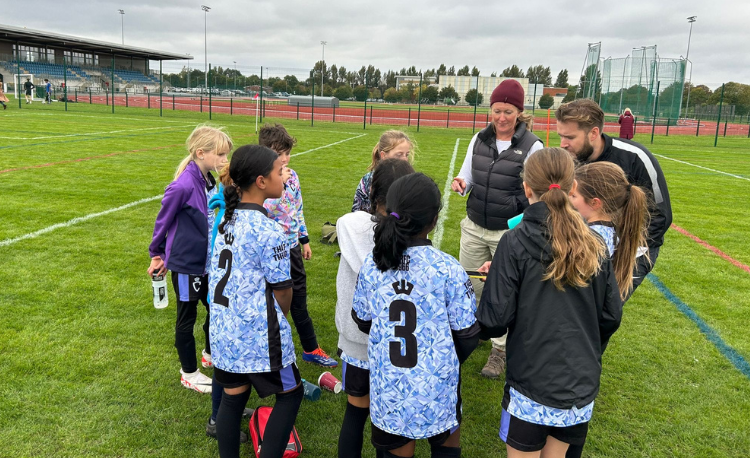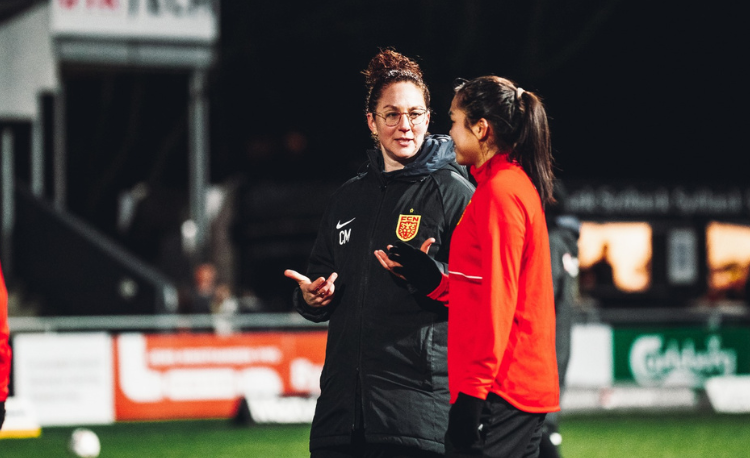You are viewing
1 of your 3 free articles
What coaches should look for at World Cup - a guide to watching games
Using European champions England, Helen Ogle and Emma Eaton pick out four key areas of their success that you can learn from during the tournament.
As we approach the Fifa Women’s World Cup, we are all looking forward to seeing some of the best female players showcasing their talents on the global stage.
But as well as tuning into matches to enjoy the great goals, committed challenges and moments of pure brilliance, there will be plenty to keep an eye on from a coaching perspective, too.
Here are four key things to look out for throughout the tournament...
01 Coaching behaviours
Take some time observing different coaching styles and the attributes used to positively impact teams.
England head coach Sarina Weigman, for example, spends most of the game looking stoic on the sidelines. This demonstrates the importance of preparing her team, so that only minimum information and guidance is needed during the game.
You may notice she will give information to one player who will then share it with the rest of the team. This puts the players at the centre, with the coach playing a supporting role.
Thinking about the way you coach, how do you prepare your team before a matchday? Do they go into a game feeling confident to perform and have the knowledge of what is being asked of them?
It is good practice to spread these responsibilities across your backroom staff, utilising each of your coaches’ individual strengths.
02 Versatile players
As a coach – particularly those working with youth teams - it is important not to ‘box off’ a player to one specific position.
Having played left-back at last summer’s Euros, and then becoming the FA Women’s Super League’s top goalscorer this season as a forward for Aston Villa, England’s Rachel Daly is a shining example of the results that come from developing players across various positions.
Thinking outside of football, it is good practice to encourage your players to take part in other sports. Not only will your players gain key fundamental movements to support their development, they will learn the importance of defensive and attacking principles, whether that be as part of a team or participating in an individual sport.
03 Adopting a Positive Team Culture
As a coach, it is not only about your technical knowledge on the pitch but how you make your players feel.
A core aspect of England’s success at last year’s Euros was the togetherness and team cohesion throughout the tournament.
When it comes to role models, Beth England shines through as a true team player. Although she didn’t feature on the pitch during the tournament, her role off it was vital to the team’s success.
It is important to recognise everyone’s contributions to the team. Individual success doesn’t solely equate to the time a player is part of the starting line-up – there are so many different ways a player can contribute.
Reinforce the contributions that your players bring to training, letting them know their hard work supports their team-mates.
You could ask players to watch from the sidelines and give one or two pieces of feedback to the team, or you could give them roles on a matchday to help the coaches – developing their off-field skills.
04 Technical detail
Through a technical lens, Kiera Walsh is one of the world’s most exciting players, yet remains calm and composed on the ball. She plays a key role in England’s midfield, managing and protecting the back line. She is also a vital cog in transition.
If you watch any England games at the World Cup, observe Walsh’s technical capabilities, particularly focusing on her ability to turn with the ball.
How can you adapt the learning you have taken and apply it to your coaching sessions, to support the players you work with?
- Helen Ogle and Emma Eaton work as football development officers for the Surrey FA in southern England.
Related Files
Newsletter Sign Up
Newsletter Sign Up
Discover the simple way to become a more effective, more successful soccer coach
In a recent survey 89% of subscribers said Women's Soccer Coaching makes them more confident, 91% said Women's Soccer Coaching makes them a more effective coach and 93% said Women's Soccer Coaching makes them more inspired.
*includes 3 coaching manuals
Get Inspired
All the latest techniques and approaches
Women's Soccer Coaching offers proven and easy to use soccer drills, coaching sessions, practice plans, small-sided games, warm-ups, training tips and advice.
We've been at the cutting edge of soccer coaching since we launched Soccer Coach Weekly in 2007, creating resources for the grassroots youth coach, following best practice from around the world and insights from the professional game.
